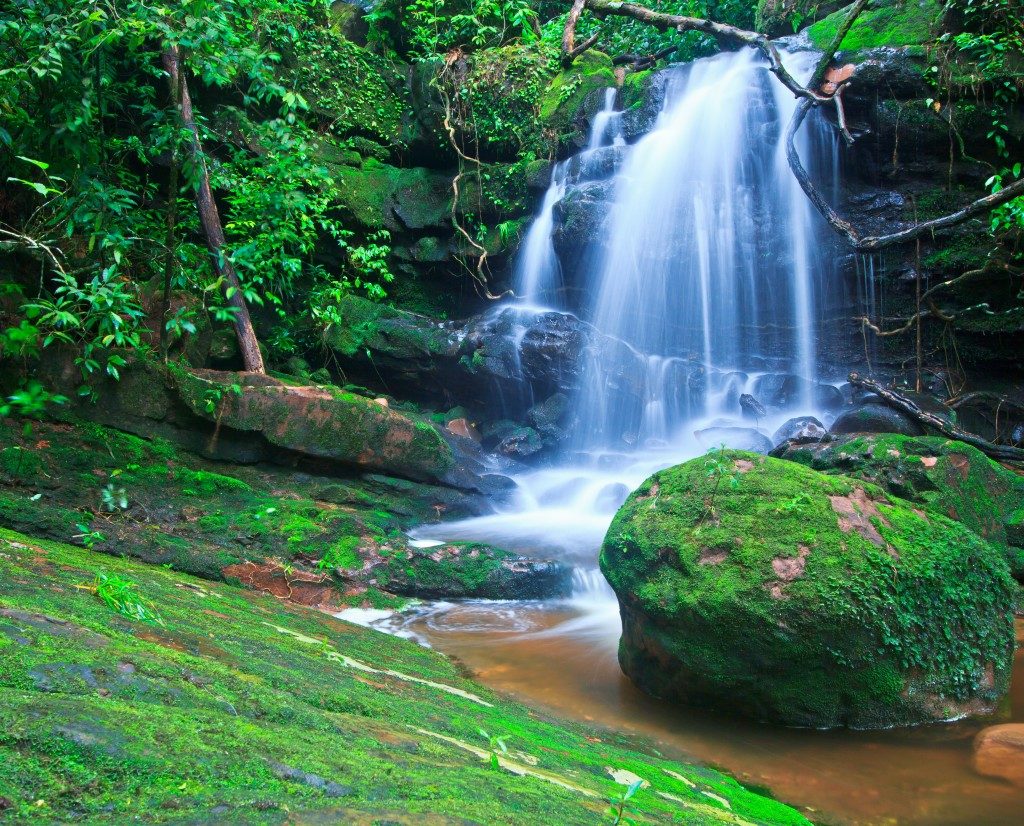There are myriad well-studied benefits to health and well-being resulting from our spending time engaged in outdoor activities. None of the research suggests that women benefit any less than men or that those benefits are somehow less important to women. In fact, they may be even more critical.
Yet it’s well-documented that year after year, women don’t spend as much time outdoors compared to men.
This is a problem. And it’s something that more men need to start caring about and taking more action to address than is currently being done.
Understand the challenge
If you ask the average man what women might have difficulty dealing with on an outdoor adventure, the common answer would likely have to do with the matter of urinating.
There is indeed an inescapable biological difference in that aspect, and men have an easier time relieving themselves on the trail. Women can’t just stop and go anywhere. They face a higher risk of urinary tract infection and must be doubly alert to dangers like poison ivy.
But the complexity of the challenge that women face can’t just be reduced to their having a different method of peeing.
Simply put, women have to contend that outdoor experiences, in general, are designed to be enjoyed primarily by men.
Consider any outdoor activity, and you’ll find that consideration of the unique challenges women face is less than appropriate.
Apparel, for instance, might not be designed with women in mind. For every company selling gear like the Blizzard Black Pearl that really caters to women’s needs, many others are still focused on a male-dominated audience.
Male travel organizers and companions may be insensitive because women’s outdoor experiences can be greatly affected by menstruation. It potentially impacts physical performance and stamina and is a hassle to deal with outdoors. Women must plan around the menstrual cycle, while men are generally oblivious to it.
Women also have to suffer poor treatment from men they encounter outdoors. In competitive sports, men tend to belittle or question women’s capabilities. Even in a leisurely setting like the trail, women can feel sexually harassed or patronized by the men they meet.
A growing gap

We need to understand that women face an entirely different outdoor experience. One that’s far more difficult and much less welcoming.
This begins from an early age, as studies indicate that the gap is already notable among preschoolers. And it widens dramatically as we age.
Women’s outdoor involvement drops from an average of 55% in their 20s to 20% in the mid-60s. The corresponding decline among men in the same age range is from 60% to 40%.
In a world where the struggle for equality is gaining ground, those numbers can’t be explained away simply by pointing to motherhood or the woman’s traditional role in the family.
The fact that it persists in the face of the movement for equality elsewhere holds disturbing implications. Barriers to entry make women more likely to become obese or suffer from other physical and mental illnesses that can be prevented by outdoor physical exercise.
These are the problems your female friends and family members could be dealing with, now or in the future. If you have daughters or granddaughters, they may feel excluded from activities men take for granted.
Trending towards change
Men may be part of the problem, but we can also be part of the solution. Breaking those glass ceilings in the realm of outdoor activities will become much easier for women if men make an effort to change their perceptions.
Be cognizant of this problem, and strive to educate other men about it. The more we genuinely make an effort to be inclusive and considerate of the women we meet and travel with, the safer they will feel.
Remove the social and psychological obstacles, and more women will find it pleasant and worthwhile to brave the physical discomfort and hardships.
Most of all, strive to make an impact on the youth. Girls might enjoy the outdoors differently than boys, and that’s okay. Whether a girl wants to learn the ‘manly’ survival skills or freely explore the natural environment, we shouldn’t impose a one-size-fits-all experience.
Physical activity teaches us that we can do more than what our minds, or the minds of others, believe us to be capable of. If more men acknowledge that our behavior excludes women from outdoor participation, more women can start experiencing that transcendent, empowering lesson for themselves.

